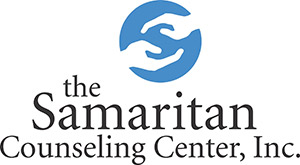
Thanksgiving is celebrated traditionally in many cultures. The national holiday can be observed through the act of giving thanks and the grateful acknowledgment of divine favor. In the Old Testament, the word giving means: to raise one’s hands to God in gratitude. In addition to being a season to be thankful to God, November is National Gratitude Month.
Can we differentiate gratitude from thankfulness? The answer to the question lies in the perception of the person defining the word. Unfortunately, many may define the words with similar meanings. Gratitude is more complex than simply giving thanks. Practicing gratitude provides a deeper connection to ourselves, the world around us, and our creator. Increasing an individual’s awareness of the power of gratitude, helping them understand the many ways to display gratitude, and educating others on the therapeutic benefits of practicing gratitude can positively change the mental landscape of society.
Gratitude is proven to have positive effects on multiple areas of our lives. Practicing gratitude can beneficially impact neurotransmitters and is consistently associated with achieving greater happiness. Knowing the power of gratitude can give individuals a renewed perception of life. Practicing gratitude makes available the opportunity to realize life happens for us and not to us. A practice of gratitude is focusing on God instead of the situation we face physically.
Robert Emmons, professor of psychology at UC Davis, has deemed gratitude the best mental health medicine during difficult times. During tough times individuals are taught to project themselves into the future and imagine how grateful they will be when their circumstances change. It was a beneficial coping strategy for clients that utilized it during the Covid-19 pandemic. James 1:2-4 tells us, “Count it all joy, my brothers, when you meet trials of various kinds, for you know that the testing of your faith produces steadfastness.” If properly executed, this practice can help us find a sense of God’s presence, his personal care, and his perfect timing. The benefit of the knowledge of gratitude allows us to be renewed daily.
One cannot display gratitude without understanding how. The Thanksgiving holiday provides one with many ways and opportunities to express gratitude. During the Thanksgiving holiday, gratitude is typically expressed through preparing traditional food, decorating, and verbal declarations of thankfulness. Gratitude can also be shown through creating a gratitude journal.
Writing things you are grateful for every day can be as necessary as a robust meal. It gives individuals a way to reflect on how they are feeling to control their current narrative. Another way to show gratitude is through direct sharing. Telling individuals how grateful you are for having them, their services, and their friendship in your life can be uplifting and impactful to others. Lastly, one can show gratitude by giving back to their community. Helping in the community is an effective way to show appreciation. Doing your part gives other community inhabitants a reason to be grateful. Physical portrayals allow one to feel helpful to others and exude compassion.
The greatest reward of practicing gratitude can be received through long-term therapeutic benefits. This practice is one of the simplest ways to help individuals recognize and appreciate positivity instead of focusing on negativity. Any living and breathing human being can attest that times of hardship will appear in life. Practicing gratitude gives control to the person who may be executing it. This practice is proven to positively impact the community’s psychological, physical, and personal well-being.
In conclusion, increasing an individual’s awareness of the power of gratitude, helping them understand how to display gratitude, and educating others about the therapeutic benefits of gratitude are highly effective ways to celebrate National Gratitude Month. Proverbs 11:25 teaches us: “Generous persons will prosper; those who refresh others will themselves be refreshed.” The betterment of society can begin through the positive effects of gratitude. The improvement of society through reflection, acknowledgment, and acceptance of worth starts with you. Get to work!

George Ishman was raised in Eutaw, Alabama, where he graduated from Greene County High School. At an early age he knew he wanted to be an advocate for change and an inspiration for individuals that live in communities facing economic challenges. Ishman received his undergraduate degree in English from ASU in 2017, where he graduated Cum Laude. He obtained his Master of Science Degree in Counseling and Psychology from Troy University in 2021. As a new counselor, George is looking forward to helping clients find solutions and resources that will support their efforts to achieve their optimal level of functioning. George provides Cognitive Behavioral Therapy, Behavioral Modification Therapy, and Supportive Therapy for adults and adolescents.










